By Lizzette Arias, Communications Manager, US Ignite
A year ago the Toyota Mobility Foundation selected San José, CA as the recipient of a $260,000 grant to help explore leveraging AI and computer vision for improved street safety. The city used the funding to outfit vehicles with cameras that feed data into an AI model – also known as the Road Safety Conditions Pilot. US Ignite, as a national nonprofit with expertise in advanced technologies, was recruited to support San José leaders on public safety, transportation, network communications, civic engagement, and Artificial Intelligence (AI).

Since then, the City of San José has made great progress in developing an AI model, outfitting city vehicles with cameras that feed into the AI model, and forming valuable community and academic partnerships. Below we dive deeper on three specific fronts –university partnerships, data hub design, and community outreach – where San José has made commendable progress worth sharing with community leaders all around.
Starting with the Vision
The vision guiding the Road Safety Conditions Pilot centers around the process for identifying and addressing road issues in San José. Illegal dumping, discarded bulk items, obstructed bike lanes, and various other hazards affect the city’s 1,500 miles of roads. Currently, the city dedicates hundreds of staff hours a month to identify issues and relies on residents to spot and report issues via the San José 311 app, a phone call, or an email.
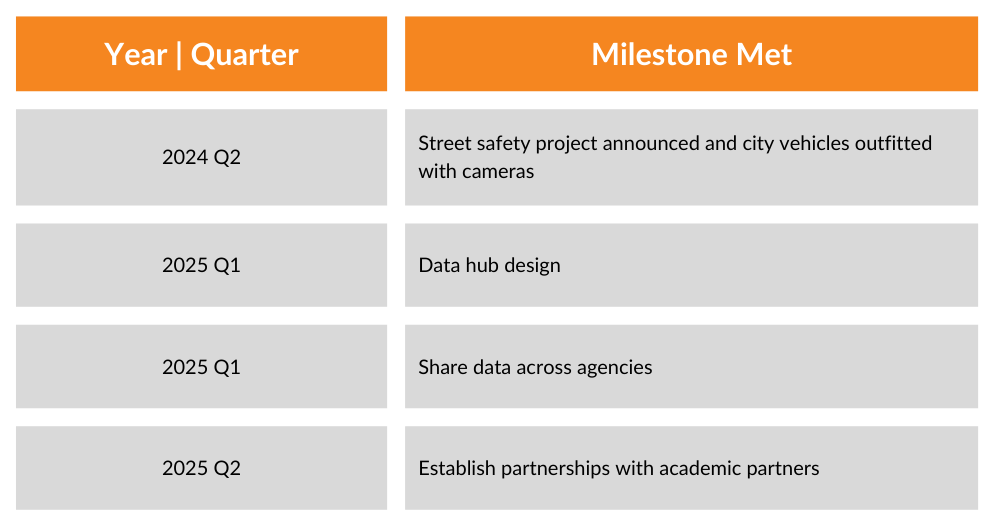
The Road Safety Conditions Pilot leverages AI and computer vision to revamp this process entirely. Once complete a new automated AI detection tool will proactively detect obstructions in and around bike lanes and sidewalks, and automatically report them to the relevant city department for timely resolution.
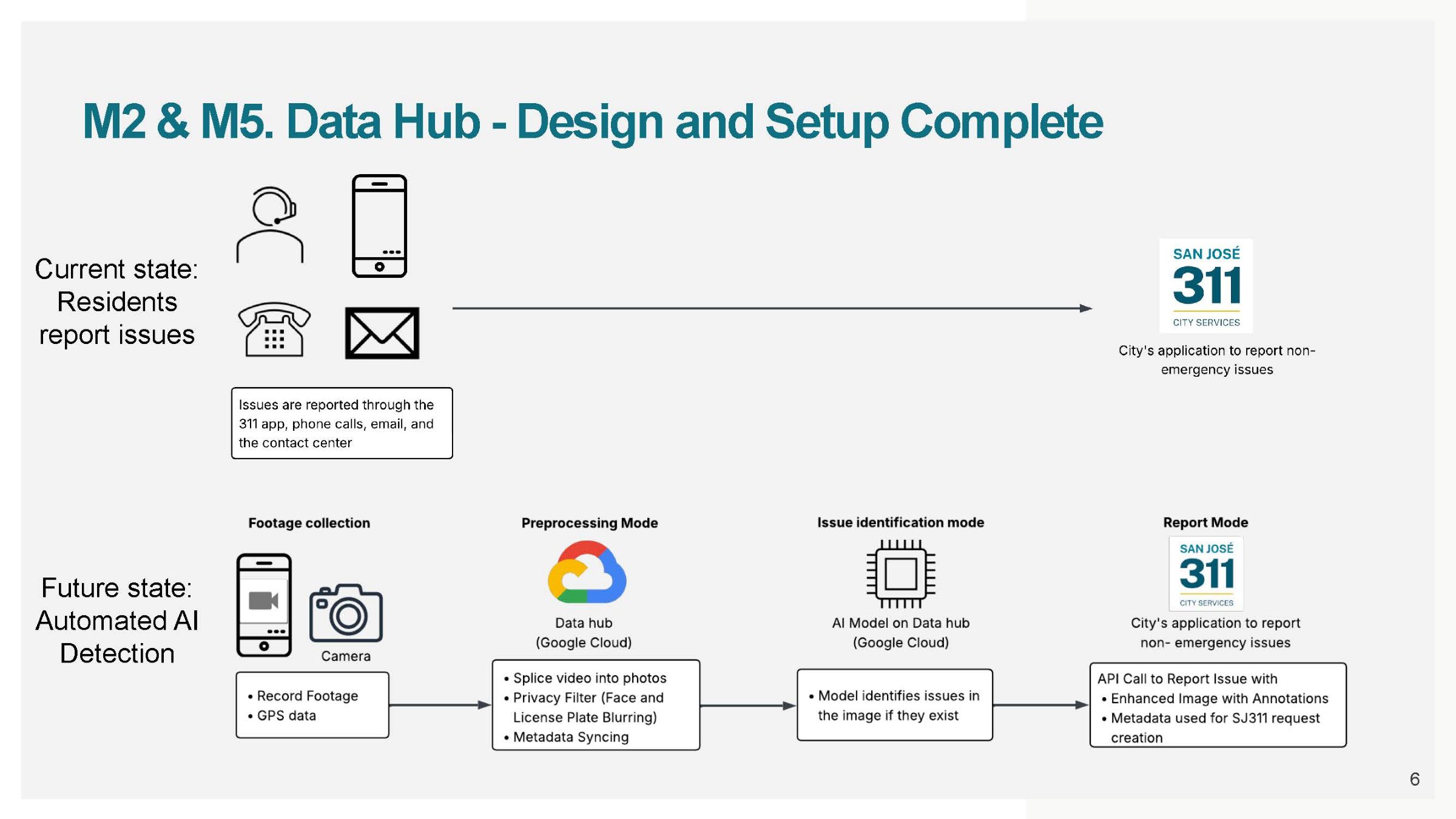
Upper line – Current state of Issue reporting to the 311 system.
Lower line – an automated future state supported by city-built tools. Allows for faster issue reporting and remediation. No need for a human being in the process to verify what the AI “sees”
University Partnerships
So far, the City of San José has engaged three academic partners for the Pilot: Stanford University, University of California Santa Cruz (UC Santa Cruz), and San José State University (SJSU). During an early phase of the Pilot, researchers at Stanford and UC Santa Cruz provided guidance on how the City could optimize footage collection, but adjusting implementation settings such as camera angles, zoom levels, and recorded metadata.
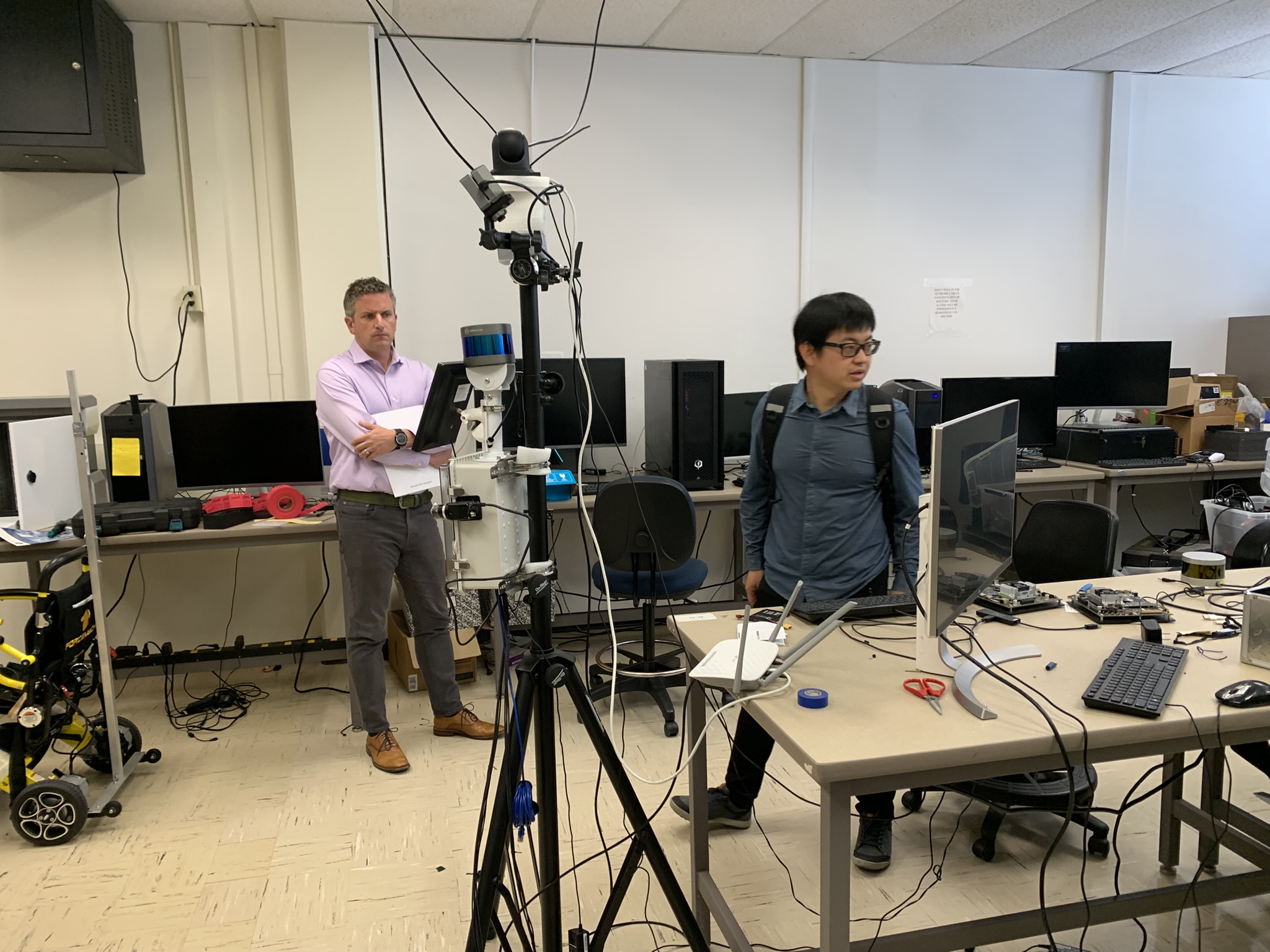
In the current phase of the Pilot, a team of three professors and graduate students at SJSU have created a model that can accurately detect construction signs and orange traffic cones. They will continue to work with the City on creating additional machine learning models to detect, categorize, and label other potential road safety issues.
Working with these university partners has been valuable to the City because it combines academic research with real-world City operations. Public and academia collaborations also strengthen San José’s ties with local universities, ensuring that students and faculty can contribute their expertise to improve community services for everyone. At the same time, students are introduced to the value of public service careers, showing how government jobs offer meaningful work that directly benefits residents and improves quality of life in San José.
Data Hub Design
Since the pilot project aims to create an AI-powered service capability, designing and establishing a data hub was a foundational step. The data hub specifically designed for this project sets up the possibility for responsibly scaling AI detection capabilities citywide while maintaining security, efficiency, and transparency across departments and partner organizations.
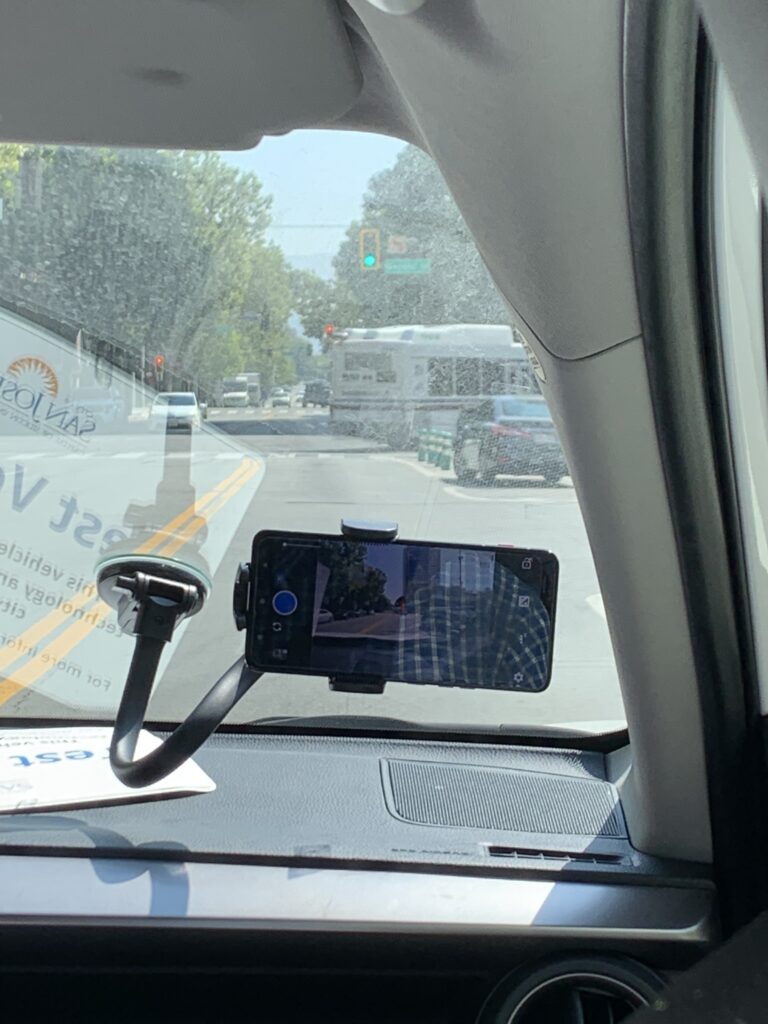
A number of academic, government, and industry partners have helped create the data schema that serves as the framework for the data hubs, resulting in a comprehensive and well-constructed standard. Key features of the centralized and cloud-based data hub include:
- Storage architecture – Separate city-specific data hub and cross-agency data hub, with their own unique architectures. This enables secure, efficient data sharing while protecting sensitive information, allowing each hub to meet its specific privacy, compliance, and performance needs.
- Access control and security – Users register for an account and access privileges are assigned to users based on their granted user roles, which are managed by the City of San José staff.
- Data Management – Designed to support structured and unstructured data, and to support image, video and annotation file formats (e.g. JPEG, PNG, MP4, JSON, CSV).
- Clear Budget Management – Operating with a targeted budget range of $10K-$20K and under a separate cost model and management structure from core City systems.
The City of San José is confident that this foundation will enable secure, efficient, and transparent scaling of the pilot at the appropriate time.
Community Outreach
Innovative technology pilots can only succeed when the extended community and stakeholders are invited to share their opinions, questions, and concerns. San José has treated community outreach as methodically and carefully as any other technical component. The city has sought input and feedback from residents on several aspects – from the use of AI by the city to the object detection list for the AI model – using a mix of online events, street festivals, and surveying.
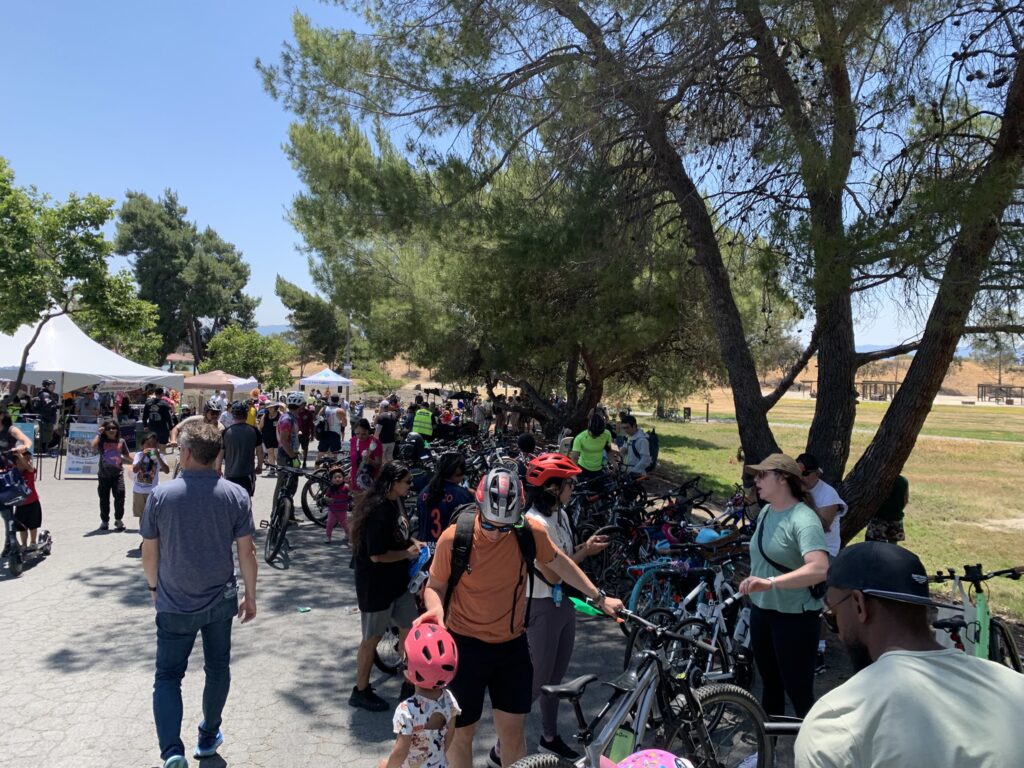
In February 2025 San José offered two informational webinars for the public. Their targets were stakeholders directly impacted by and contributing to the deployment (e.g. bicycle clubs, bike advocacy groups etc.) All the webinar participants were invited to fill out a general survey and sign up for the email updates about the pilot and future events.
Then in June 2025 at Viva CalleSJ, which is a free Open Streets program in San José that transforms streets into car-free spaces for walking, biking, and community connection, the city provided information about the pilot and asked for feedback from the community at an information table and through the online survey.
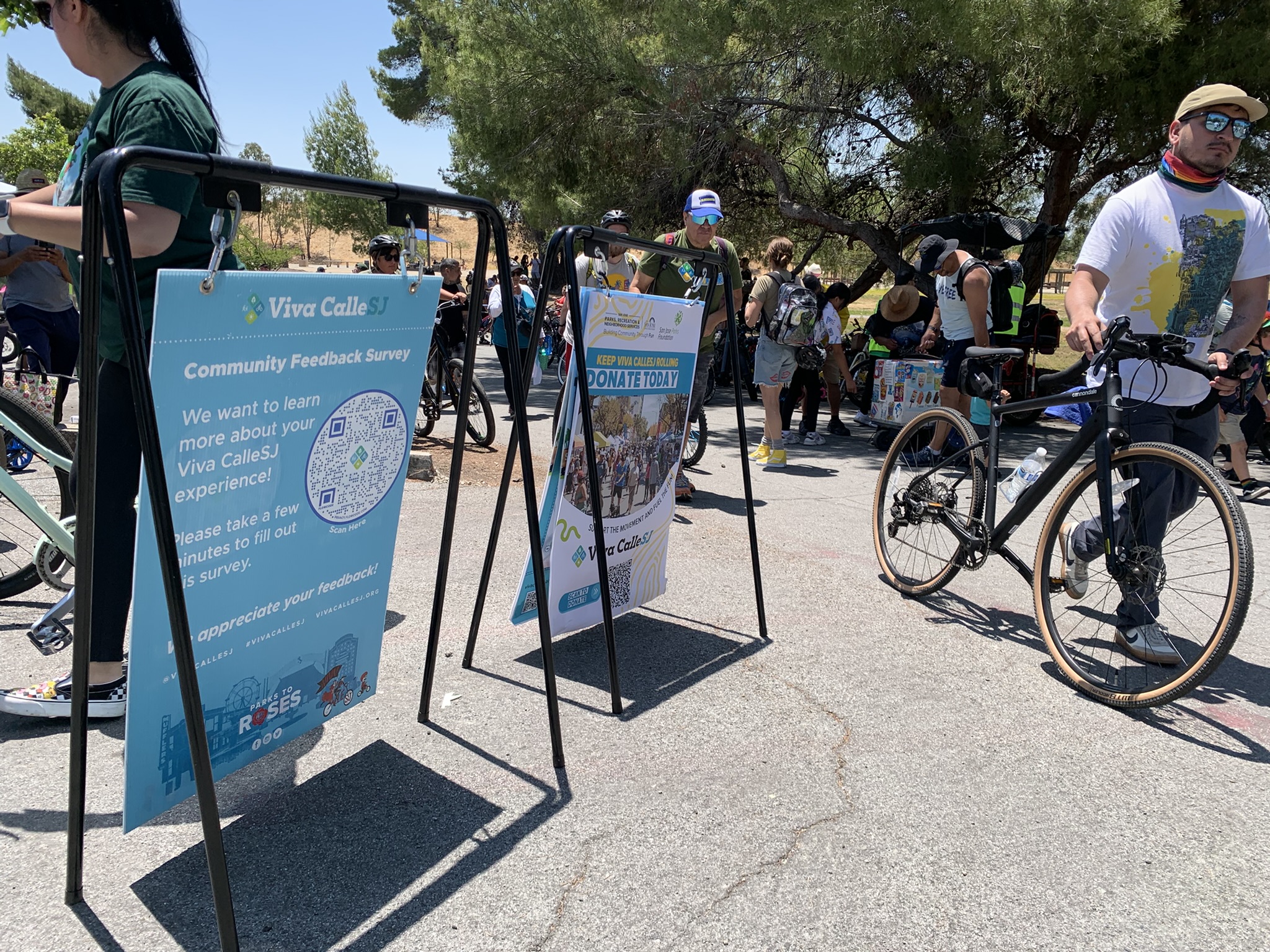
Initial results from the survey indicate that the community feels comfortable with the use of AI for this purpose, but only on the condition that human oversight is involved. Some respondents indicated concerns around privacy risks, including around sensitive information that could be captured by the footage and how that data could be misused by bad actors. In addition, many respondents shared their hopes for problems that the technology could help solve, like making bike lanes safer for cyclists and supporting parking compliance.
The feedback provided by residents via the survey and verbally at outreach events was incorporated by the project team and used to shape decisions about the project’s direction. For example, to be responsive to valid privacy concerns voiced by residents, the AI and Privacy team is implementing strict privacy controls including the blurring of faces. Additionally, the project team has increased its emphasis on bike lane issues as a result of stakeholder feedback. San José will continue to use the survey to gather feedback which in turn refine the project design and implementation.
What’s Next
As the City of San José, Toyota Mobility Foundation, andUS Ignite enter the next stage of the Road Safety Conditions Pilot, the priorities remain on developing and training the AI model, a secure data sharing system, strong academic partnerships, and a limited deployment of the technology. More detailed insights from this pilot project will be shared at the pilot’s conclusion.
In the meantime, if you are a City of San José resident that wants to voice your opinions or learn more, please visit the City of San José website. Moreover, any AI experts interested in getting involved should check out this Request for Information (RFI), which remains open until September 15, 2025. Lastly, any community interested in diving into a similar project should reach out to US Ignite’s Communities team to learn how to make it possible by emailing [email protected]. We’re eager to help you tackle real challenges with the latest technologies available.

